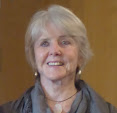Tuesday, June 26, 2012
On Self-Awareness and Self-Consciousness
One way of distinguishing between self-awareness and self-consciousness is to view the former as more cognitive and the latter as more emotive. As teens we tend to be highly self-conscious as we rapidly undergo brain development, have hormonal and physical changes, and move into a more expansive social canvas. With an already more or less solid beginning we can emerge from this crucible with a fair amount of confidence and social ease. For many, however, self-consciousness, painful and even debilitating, can persist into adulthood. Suffering in this way I can experience society of any complexity overwhelming. With others I am anxious; often I will imagine that they are perfectly at ease, that they see through my façade, or, that they are uninterested in me or find me boring/incompetent/unattractive. Because these feelings are so painful, I seek refuge in withdrawal from company, the development of a mask behind which I conceal myself, or possibly, the use of alcohol or drugs to literally spirit myself away.
Self-awareness, on the other hand, is a capacity to view somewhat dispassionately one’s behavior and feelings in order to more deeply understand oneself and by extension, others. It is an ability which in good circumstances, one can grow up with. It also can be developed later in an intentional fashion. What is most needed is a space in which this can occur. A therapeutic relationship is one such space, but by no means the only one where this can happen. Ideally, the therapist in a non-judgmental fashion can feed back to her client the things that she is aware of in the session. It can be as simple as to say, “You seem to be rather nervous.” If I have developed the habit of hiding my nervousness with others, I may even have hidden it from myself. Feeling so vulnerable may not coincide with the view that I want or need to have of myself. When the therapist gives me her observation, because I have sought her help and because I can sense that her words are not an accusation or a put-down, I may be able then to acknowledge to her and to myself that I am indeed nervous. Expanding within this terrain we may then jointly look more closely at what I might be afraid of in the encounter with her: criticism? an attack? humiliation? dismissal? a lack of understanding? We might also consider other milieu in which similar feelings arise. Are there similarities and/or differences in those situations? After this talk I may begin to find myself more aware of my nervousness in other places, talk with the therapist about these, and begin to understand more deeply their origins.
Any space that we carve out to be with ourselves can also facilitate greater self-awareness and knowledge, if this is indeed our intention. Meditation, for example, is a practice whereby I set aside time to be quietly with myself focusing on my breathing and allowing myself to dwell within my body within the moment. Much of our lives are spent in the midst of various stimuli from without and within. Our thoughts speed along from past to future events or concerns. Developing an ability to situate ourselves in our bodies and in the present is a valuable antidote to these consuming and distracting forces. But it is not an easy practice to acquire. Being aware of the thoughts that arise and quietly returning oneself to a focus on breathing requires constancy and determination. It is not necessarily a peaceful practice especially as one works herself into it more deeply. During my meditation I simply allow thoughts to come unbidden and rather than go along with them, leave them and return my focus to my breathe and to being in my body in that moment. Staying there, I will inevitably come face to face with thoughts and feelings about myself and perhaps of others with which I had not been connected and which I find disturbing or at least uncomfortable. Because of these experiences some people who practice meditation find themselves a coach or teacher with whom they can explore and gain perspective on these facets of their practice.
Journal writing is another venue for greater self-awareness. Julia Cameron’s workbook, The Artist’s Way, outlines a program of daily journal writing in a stream-of-consciousness manner. Her personal work and later, doing workshops with others, taught her that blocked artistic energies could be tapped as a person relinquishes some control over her output. The stream-of-consciousness technique, if regularly pursued, can open areas within that the writer has avoided often out of fear or shame. As these are revealed to the writer in this private and thus safe experiment, she can come to a greater understanding of her inner self and a greater freedom of self-expression.
Any activity that promotes a connection with the whole of one’s being can aid self-awareness, activities as simple as going for a walk by oneself, especially in an area which connects one with nature. Listening to contemplative music, watching a film with resonant issues, reading novels or non-fiction books that open unexplored but relevant vistas, or, talking with a friend whom one trusts and respects, can be helpful. Indeed all of life’s experiences invite us to deeper understanding if we can but be attuned to them without fear.
Subscribe to:
Post Comments (Atom)

No comments:
Post a Comment